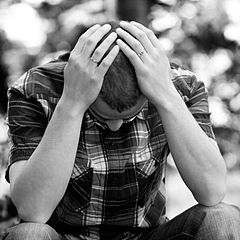Early detection is key to saving someone from an eating disorder and its associated health problems. There are many signs and symptoms, both physical and mental, that you can look for if you suspect someone you know may have an eating disorder. Eating disorders are not exclusive to one population. They affect both men and women, and sadly affect all ages.
ANAD reports that 42% of all 1st to 3rd grade girls want to be thinner. This is an unusually high percentage in an age group that has yet to develop their bodies or meet the pressures that middle school and high school brings. This percentage only increases as females age. 69% of girls in 5th-12th grade said their idea of a perfect body shape has been distorted by magazines, and 91% of women surveyed on a college campus have attempted to control their weight through dieting at some point.
The statistics show that throughout the years of a woman’s schooling, she is likely to be concerned with her weight and feel pressure to lose weight. This can include women that are already at their ideal body weight and do not need to lose weight to begin with. Although there are more statistics surrounding women, men are too suffering from these illnesses. What is even more unfortunate is that men are less likely to seek out treatment, because of embarrassment and the idea that these are only a woman’s disease.
As National Eating Disorders Awareness Week wraps up, we would like to list just some of the warning signs or symptoms you may see that can be indicative of an eating disorder so that you may be able to detect early and find treatment.
Photo: Wikimedia Commons
[ new page = Dizziness ]
10. Dizziness
Some people may experience dizziness or fainting. Overall, they may feel a lack of energy and drive. This is a clear result of the body not receiving adequate energy, fluids, or electrolytes.
[ new page = Amenorrhea ]
9. Amenorrhea
Amenorrhea occurs when women experience irregular or absent menstrual cycles. This is primarily caused by anorexia, due to the severe caloric restrictions and hormone imbalances, but it may also be a result of bulimia as well.
[ new page = Self-absorbed ]
8. Self-absorbed
The most evident sign that someone may be struggling with their self-esteem and body image is simply from what they say. If they are constantly talking about being “fat” or needing to lose weight, they most likely have a misperceived view of themselves. It is crucial to help guide them to positive thinking, for they may not have developed an eating disorder yet and may only be contemplating the idea. If you are too late to take preventative measures, again early detection is imperative.
[ new page = Eating in secret ]
7. Eating in secret
Eating alone and in secret is a common sign of binge-eating disorder (BED). BED is characterized as eating excessive amounts of food without any compensatory behaviors afterward. This often leads to remorse and a feeling of guilt, where one feels out of control.
[ new page = Excessive exercise ]
6. Excessive exercise
A strict exercise regimen is one way that someone with an eating disorder may compensate for his/her calorie intake. When exercise is taken to the extreme and he/she feels stressed if a work out is missed, this may be a sign to a bigger problem. Often times if it is an eating disorder you will see this person try to exercise immediately after consumption of food.

Image: Wikimedia Commons
[ new page = Food rituals ]
5. Food Rituals
This may include odd eating behaviors or constant fad dieting. Ritualistic behaviors are commonly seen in people with anorexia nervosa, where they may cut their food into fine bits and move/rearrange the food around their plate in order to draw attention away from the amount they are actually eating. Additionally, they may irrationally restrict foods from their diet or require their food be a certain consistency.
20% of people with anorexia will die prematurely because of health problems associated with the eating disorder.

Image: Wikimedia Commons
[ new page = Enamel erosion ]
4. Enamel erosion or constant sore throat
Enamel erosion or a constant sore throat may be indicative of bulimia nervosa. The acidic environment from their stomach ultimately damages their esophagus and teeth. Vomiting after meals may also induce chest pain, and it will cause dehydration and electrolyte imbalances. This can lead to cardiac arrhythmias or even cardiac arrest.
25% of college-aged women engage in binging or purging as a weight management technique.

Image: Wikimedia Commons
[ new page = Diuretic or laxative abuse ]
3. Diuretic or laxative abuse
In an attempt to lose water weight and see a lower number on the scale, use of diuretics and laxatives have been seen in eating disorders. This is dangerous, because it can lead to dehydration and loss of electrolytes, which can lead to serious heart problems like cardiac arrest. It may also lead to a dependency on laxatives in order to maintain regular bowel movements.

Image: Wikimedia Commons
[ new page = Depression ]
2. Depression
Overall, eating disorders affect self-esteem and hormone balances. When these things are negatively affected, it can cause moodiness or withdrawal. You may see a naturally social person become isolated and irritable. In severe cases, suicidal thoughts may occur.

Image: Wikimedia Commons
[ new page = Low body temp. ]
1. Low body temperature
If someone is losing a good percentage of their body fat, it would be normal for them to feel cold a lot of the time. This is more commonly seen in anorexia nervosa and may not arise until body weight has decreased significantly. Along with a decrease in body mass comes malnutrition, and with that may bring bitter nails or thin hair.

Image: Wikimedia Commons
There has been a critical error on your website.<\/p>
Learn more about debugging in WordPress.<\/a><\/p>","data":{"status":500},"additional_errors":[]}
